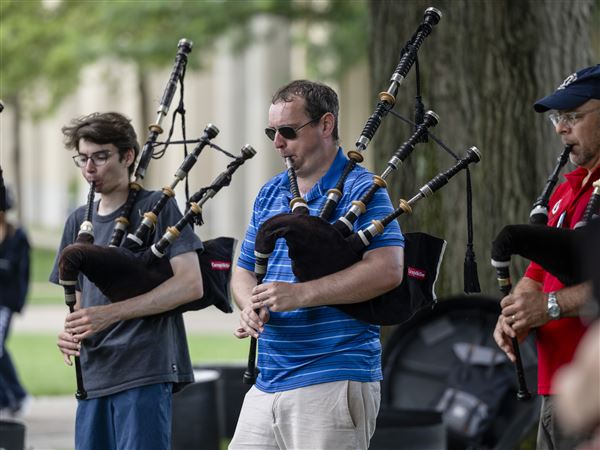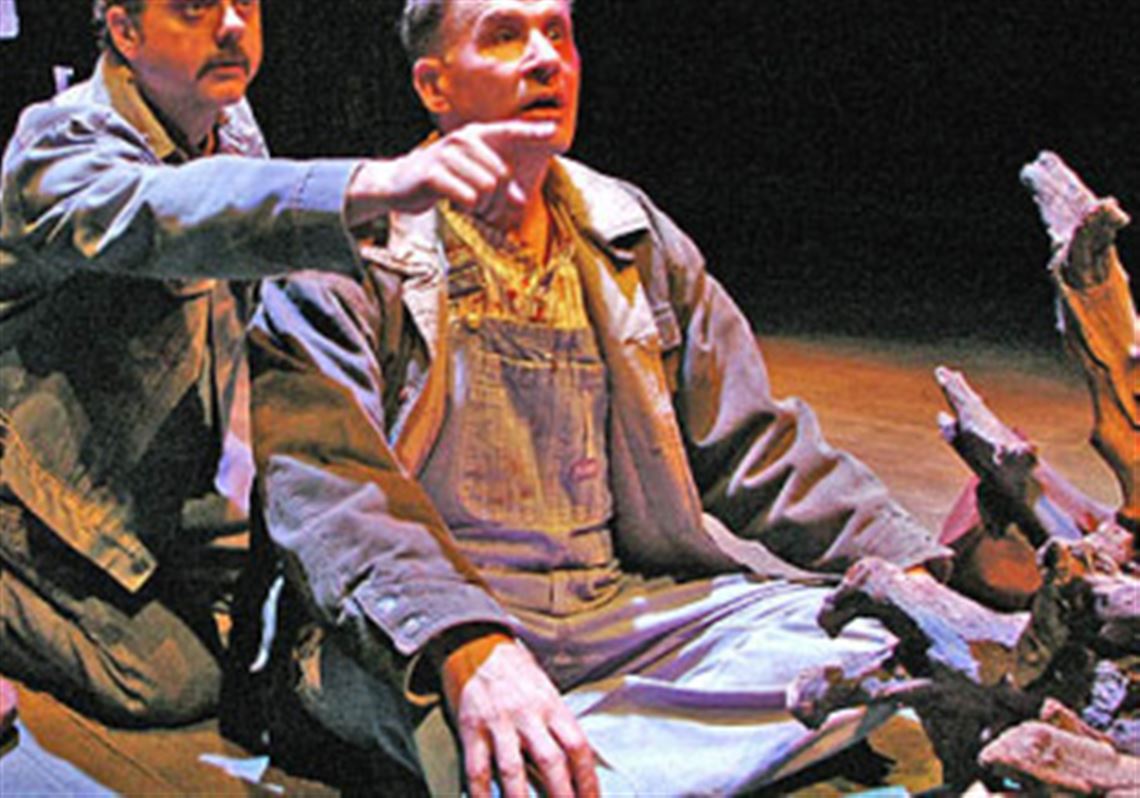On Broadway, there's a spurt of plays and musicals dealing with the '50s, but in Pittsburgh this week, it's the '30s. At Pitt, Arthur Miller's "The American Clock" surveys the decade; at CMU, August Wilson's "The Piano Lesson" is set in 1936; and at the New Hazlett Theater on the North Side, Prime Stage is doing John Steinbeck's 1937 "Of Mice and Men."
That's three classic American authors, dealing in different dramatic ways with the trauma of the Great Depression. The most mythic is by Steinbeck, the potent poet (think Woody Guthrie) of the mainly victims of heartless capitalism and the disasters of the Dust Bowl.
At the center of "Mice and Men" is a dual image of shrewdness and simplicity, aspiration and limitation. George is the canny one who imagines a way out of the imprisoning cycle of hard, rootless work followed by binge R and R. Lennie is the simple-minded giant who needs constant supervision. George complains about the burden, but he also knows that caring for Lennie gives him a hope denied to others and makes possible their dream of independence on a small farm.
- Where: Prime Stage Theatre, New Hazlett Theater, North Side.
- When: Fri.-Sat. 8 p.m.; Sun. 2:30 p.m.
- Tickets: $10-$20; 412-394-3353 or www.primestage.com.
Crooks, the black stable hand who can't even bunk with the other hands and enjoy their camaraderie, observes that "every damn one of them [migrant hands] got a piece of land in their heads." But for a moment, even Crooks and the crippled Candy, about to be discarded like an old dog, catch sight of the promised land, too.
Their vision is doomed, of course. Lennie is too unstable, and the dreamers are assaulted by the frustrations of others, especially the hapless child bride of the boss' whining son. The play is an elegy for dreaming, although in the final moment, just before the climactic sacrifice, Lennie can still see the promised land, and I suppose we can, too, optimism being an American birthright.
Steinbeck crystallizes the archetype of the oppressed but deserving working poor. He's obvious, like O'Neill, heavy on foreshadowing and rough-hewn sentiment. But we buy it because in America, even failures have nobility. "The whole country's full of mutts," someone says, but we admire mutts.
There's no denying the emotional power of Steinbeck's story, realized with modest competence at the New Hazlett by Prime Stage director Rich Keitel and his cast of pro, semi-pro and community actors.
The boldest performance is the Lennie of Randy Kovitz, showing amazing versatility when you think he just recently did the hyper-verbal Stoppard. It's physically fine, with perhaps too emphatic vocal mannerisms -- a shade simpler might be more moving. Brian Czarniecki, an actor who has grown over the years, is an exasperated George, a bit indecisive physically but emotionally right on.
The eight supporting roles aren't on their level, but Lin St. Clair suggests the rough fairness and sensitivity of Slim, and Ken Lutz and Monteze Freeland have good moments as Candy and Crooks.
I saw young children in the audience, perhaps because Prime Stage specializes in theater for families. But here, I think children should be in middle school, or at least aged in double digits.
First Published: February 26, 2008, 10:00 a.m.















